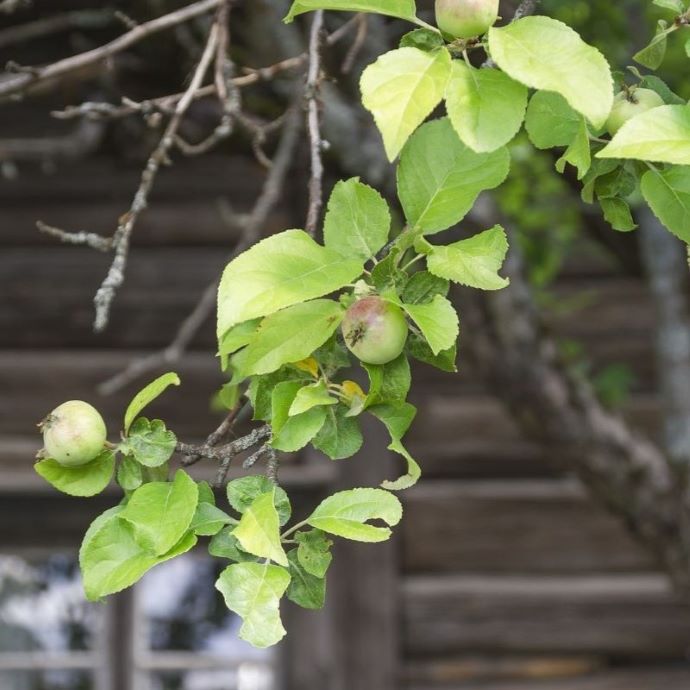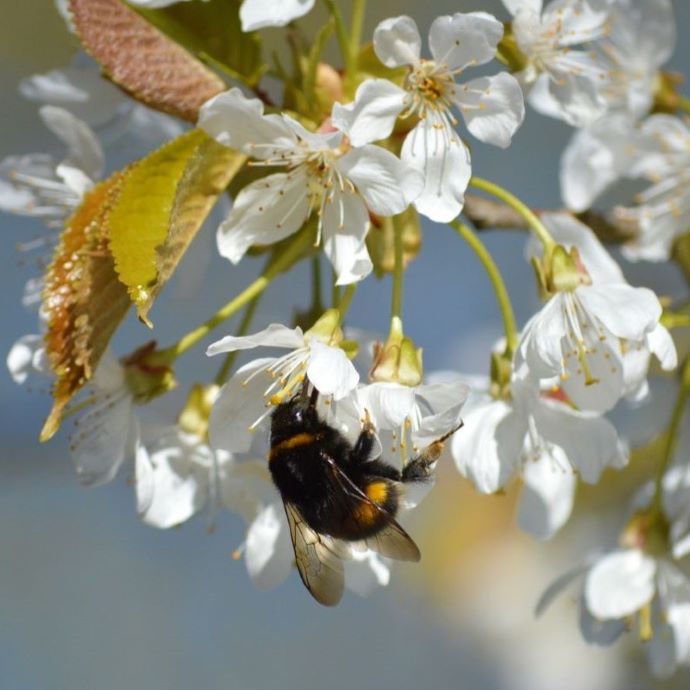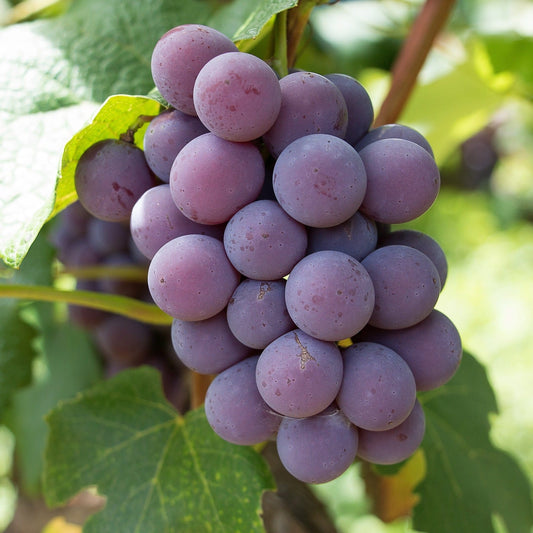Are Grapes Good for You?

From ancient civilisations to your kid’s school lunchbox, grapes have played a consistent part in human history. We know that wild grapes were harvested by Neolithic people and that grape vines were first cultivated in Europe sometime between 3500 and 3000 BCE. In fact, there are records of wine storage that date back over 7,000 years to ancient Sumeria (now Iran).
So you can say with some confidence that we love our grapes - but are they good for us? And what’s the healthiest way to consume them? (Spoiler: it’s not wine, sorry). Let’s have a look at the nutrition facts, as well as some health claims and myths.
Jump to:
- Grape health facts
- Sugar content in grapes
- Grape benefits
- Red vs green grapes
- Red wine: is it good for you?
- How healthy are raisins?
- The benefits of eating grapes at night
- How many grapes should you eat daily?
- Are homegrown grapes healthier?
- The environmental benefits of homegrown grapes
How healthy are grapes?
Grapes are made up of 81% water, 17% carbs (including 16% sugars), a small amount of protein (1%) and some fibre (4%). They contain high amounts of manganese, which benefits the immune system, bone health and blood clotting, and vitamin K, which aids bone health and blood clotting, as well as several other important vitamins and minerals. Sounds pretty healthy to me!
Grape nutrition
100g of grapes contains approximately the following proportions of your recommended daily amounts of vitamins and minerals.
- Vitamin K: 12%
- Vitamin B1: 8%
- Vitamin B6: 6%
- Vitamin C: 4%
- Vitamin B2: 4%
- Vitamin B3: 2%
Plus trace amounts of vitamins A and E and folic acid.
Minerals in grapes
- Manganese: 31%
- Potassium: 4%
- Copper: 4%
- Iron: 2%
Plus trace amounts of calcium, phosphorus, magnesium and zinc.
Calories in grapes
Grapes in their natural form are pretty much fat free (0.16%) and a 100g serving contains an average of only 69 calories. That does go up a fair bit if you make them into wine (up to 160 calories in a 175ml glass) or raisins (299 calories per 100g or 100 calories in one of those little boxes that your kids pester you for).

Are grapes high in sugar?
Grapes contain around 15% sugars. Although this is relatively high compared to some other fruits, they’re classified as low GI at an average of 59 and, as such, are not harmful to people with diabetes when consumed as part of a balanced diet.
Benefits of grapes
No-one’s disputing that grapes are good for you as part of a balanced diet including lots of fruit and vegetables in general. There are also lots of health claims made about grapes, some of which stand up to scrutiny more than others…
Grapes are good for your heart
Grapes contain a very respectable amount of antioxidant compounds, including quercetin and resveratrol, which are thought to protect our cells against oxidative stress damage and reduce inflammation. Studies have also suggested that resveratrol, found in the skin of red grapes, can help to lower blood pressure and reduce cholesterol, although research is still ongoing.
Grapes improve cognitive skills
Some studies suggest that eating grapes can improve memory, cognitive function and mood by increasing blood flow to the brain and reducing oxidative stress. Resveratrol in particular has been linked with improving cognitive performance, but again the studies are small scale and the results are mixed.
A UCLA study found that taking powdered grape supplements did improve memory and learning in a small sample of older people with mild cognitive impairment, but unfortunately there’s no conclusive evidence that it helps people with more severe impairments or dementia.
Grapes are good for your bones
Grapes are a source of vitamin K, calcium and magnesium; all essential for good bone health. This is particularly important for children's developing bones as well as for women going through perimenopause or menopause, and older people, whose bones are more vulnerable to damage.

Are red grapes better than green?
All grapes are good for you, but their nutrient content varies depending on the colour.
Red grapes have higher levels of antioxidants, including resveratrol, and flavonoids which are linked to heart health and anti-aging. They also contain anthocyanins which have also been associated with health benefits.
On the other hand, green grapes have a lower sugar content and slightly higher levels of vitamin K. They may not have as much anthocyanin, but they do still contain a range of other antioxidants. Why not hedge your bets and eat both?

Is red wine good for you?
The notion that drinking red wine is good for your heart has persisted for many years, and seems to be based on improved cardiovascular health statistics from countries like Italy and France, who traditionally drink a lot of wine.
It’s generally acknowledged that the Mediterranean diet is a healthy, balanced way of eating, but it’s a bit disingenuous to pull out a small part of it like wine and hype it up to this extent.
After all, people in Italy (at least when I was looking) tend to drink in a more, shall we say, relaxed manner than the traditional British better get two rounds in because it’s closing time in ten minutes kind of way, so their wine drinking probably isn’t so much of an issue.
The British Heart Foundation researched the claims about red wine, and found that the risks outweigh the benefits, and drinking more than the recommended limits will have a negative effect on your health. Yes, red wine contains the antioxidant resveratrol, but so do plain old red grapes. Sorry!

Are raisins healthy?
Well, yes and no...
The good news is that because the drying process is natural, all the goodness from the grapes is concentrated into the raisins, making them a good source of fibre, potassium and iron.
They’re also great for sports nutrition, providing a convenient source of energy that lasts a long time and doesn’t take up much space in your running backpack/cycle panniers.
The bad news is that they’re not going to do your teeth any good. Any food that’s soft or chewy and sticks to teeth is considered cariogenic, meaning it can cause tooth decay or cavities.
Raisins are difficult to brush away if they’re stuck to your teeth, and the high sugar content can spell serious damage, especially in children. Dentists advise that raisins shouldn’t be given to children as snacks, but with meals.
The jury’s still out on this one, but it looks like we’re ok to carry on enjoying raisins in moderation, so long as we look after our teeth.

Benefits of eating grapes at night
There’s been a lot of talk (OK, TikTok) about the benefits of eating grapes before bed. It seems to be based mainly on the fact that grapes contain melatonin, which can help regulate sleep cycles. However it’s not present in such quantities that it would make any significant difference to your night’s rest.
Grapes are full of beneficial vitamins and minerals, low in calories and high in fibre, so they’re good to eat at any time of day or night, but there’s no time when the health benefits increase or decrease. I guess that doesn’t make for the best clickbait, though!
So go ahead, eat grapes at night - it’s probably better than the post-club kebab you had planned.
Benefits of eating twelve grapes at midnight on New Year’s Eve
There’s a Spanish tradition called Las doce uvas de la suerte or “The twelve grapes of luck”, which involves eating one grape for each stroke of the clock at midnight on New Year’s Eve. There are records of it dating back to 1895, but it really gained popularity after 1909, when Alicantese grape farmers had a really good year and needed to shift their excess grape harvest.
They put it about that eating twelve grapes at midnight brings good luck and prosperity - well it certainly worked for the grape farmers - and this quaint, rustic marketing custom continues to this day.

How many grapes should you eat in a day?
Two handfuls (or four heaped teaspoons - but good luck balancing grapes on a teaspoon) of grapes count as one of your five a day, but you can’t really have too much of this healthy fruit. Unless you’re allergic to it of course…
When not to eat grapes
If you have an allergy to salicylic acid, which is present in many fruits, you may want to limit your grape consumption or swerve them altogether. The high vitamin K content also means that you should watch your intake if you’re on blood thinning medications such as warfarin.
Whole grapes are also a choking hazard for small children - they’re just the right size and shape to block a child’s airway, so they should be cut up into slices lengthwise before you give them to kids.

Are homegrown grapes healthier?
There’s no disputing, then, that grapes are a healthy food; but is it better to grow your own? Are there any nutritional differences between shop bought bunches and the homegrown version?
Homegrown grapes are fresher
Ever bought a lovely fresh punnet of grapes only to find that they’ve gone squishy or developed mould patches a few days later? So frustrating. Unfortunately grapes don’t stay perfect for long, especially when they’ve been flown in from anywhere from Greece to Namibia, as many shop-bought varieties are.
When you grow your own grapes, you can eat them fresh the minute you cut them off the vine - or just pick and eat a few every time you walk past! Your choice is far wider if you grow your own, too. In a shop you’ll typically be confronted by a dizzying choice between ‘green’ and ‘red’ with the occasional ‘black’ - and they’re chosen not for flavour but for their keeping properties and tough skins that can survive a long journey with multiple temperature fluctuations.
When you grow your own, the choices are endless - you can grow ancient varieties like golden Muscat of Alexandria, grapes that taste of strawberries or your own Pinot Noir and Chardonnay grapes.

Grape vines are gorgeous
Even if they never produced any fruit, grape vines would still be a beautiful climbing plant with large, fresh green leaves that grow into a cool canopy to shade your pergola, garden arch or arbour. The woody vines grow vigorously, twining around their support and bringing a serene Mediterranean look to your garden. The dangling bunches of grapes just add to the effect!
The planet wants you to grow grapes
The carbon footprint of importing grapes is enough to make you spit out your Sauvignon, and given the amount we consume in the UK, you’ll really be making an impact by growing your own. It’s adiós to flights from Chile in a single-use plastic punnet and hello to fresh, ripe fruit from your own lovely vine, just a few steps from your sun lounger. And no squished ones, either.
Inspired to give it a go? Check out our guide to growing grapes in the UK.
Last updated: 20/05/2024




















